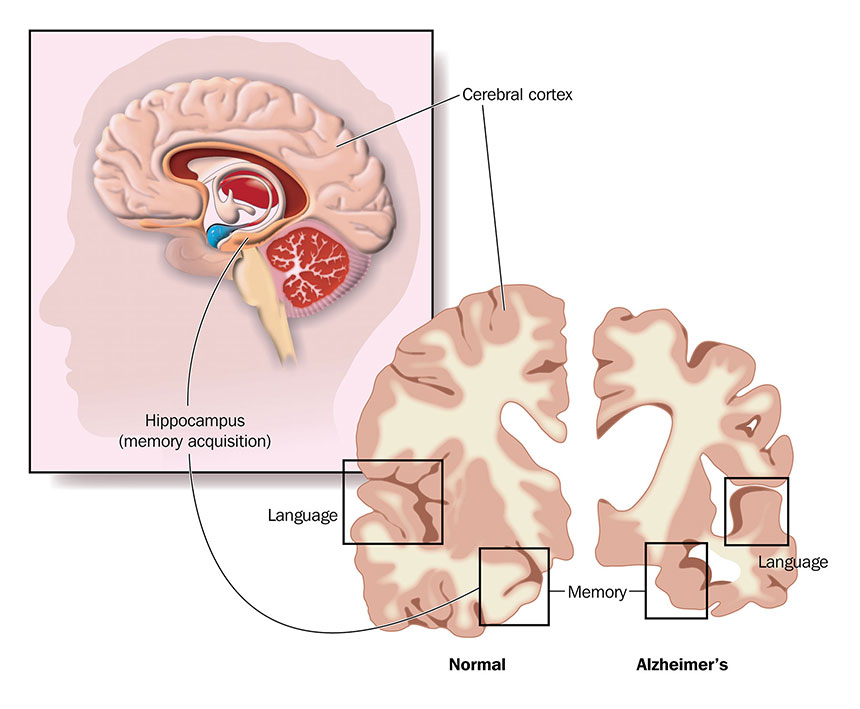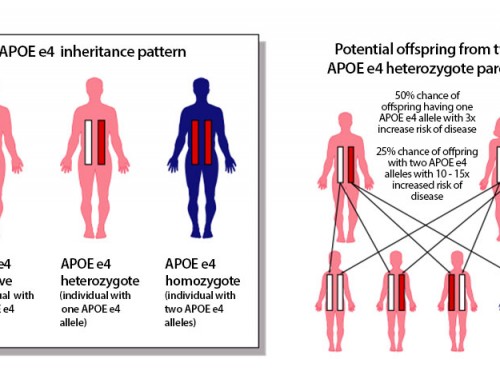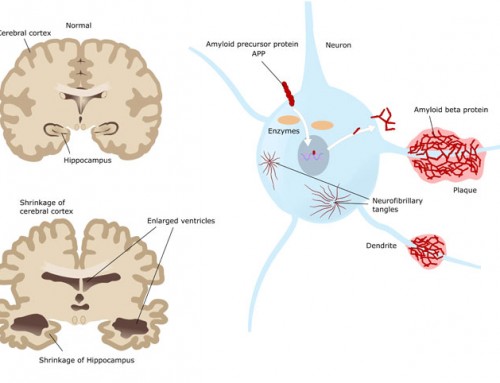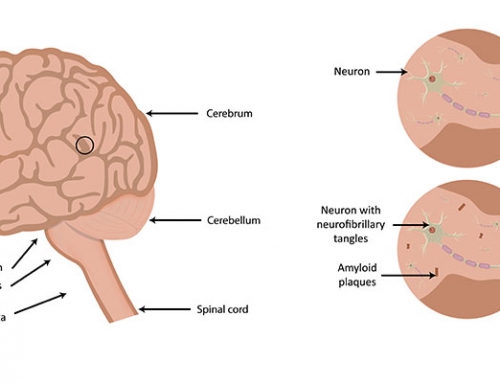[Updated 2015 Sep 24]. In: Pagon RA, Adam MP, Ardinger HH, et al., editors. GeneReviews® [Internet]. Seattle (WA): University of Washington, Seattle; 1993-2015.
What are the types of Alzheimer’s Disease?
There are two general types of Alzheimer’s disease, which have similar symptoms and progression but differ in genetic causes and the age of onset. The two different types of Alzheimer’s disease are Early-Onset Familial Alzheimer’s disease and Late-Onset Alzheimer’s disease.
Early-Onset Alzheimer’s disease, also known as Early-Onset Familial Alzheimer’s disease, is a term for cases diagnosed before the age of 65. This accounts for less than 10% of all Alzheimer’s disease cases and people usually start showing symptoms from their 40s or 50s. Some people affected by the Early-Onset form carry the same APOE e4 allele that is associated with an increased risk for Late-Onset Disease. However, often Early Onset Alzheimer’s is linked to gene mutations in one of three proteins: Presenlin 1 (PSEN1), Presenlin 2 (PSEN2) and Amyloid Precursor Protein (APP). This type of disease is very rare and runs in families, with the mutant genes inherited in an autosomal dominant fashion. This means that only a single copy of the mutated gene is required to cause the disease. Involuntary twitching and spasm of muscles (myoclonus) is observed more commonly in the early-onset type.
Late-Onset Alzheimer’s disease is the most common form, which occurs in people aged over 65, and it may not run in families. The gene that is associated with an increased risk for late-onset Alzheimer’s disease has been identified as the APOE gene. The APOE gene encodes apolipoprotein E, which combines with fats to form lipoprotein. Apolipoprotein E is essential for packaging and carrying cholesterol and fats through the bloodstream. There are three slightly different alleles of the APOE gene: APOE e2, APOE e3 and APOE e4. APOE e4 is the strongest known genetic risk factor for Alzheimer’s disease. People who inherit one copy of the APOE e4 allele have an approximately 3-fold increased risk of developing Late-Onset Alzheimer’s disease, and people who inherit two copies of the APOE e4 allele have a 10-15 times greater chance of developing the disease.
References:
Bird TD (1998). Alzheimer Disease Overview.
Genovate Laboratories2017-04-06T00:20:04+00:00






